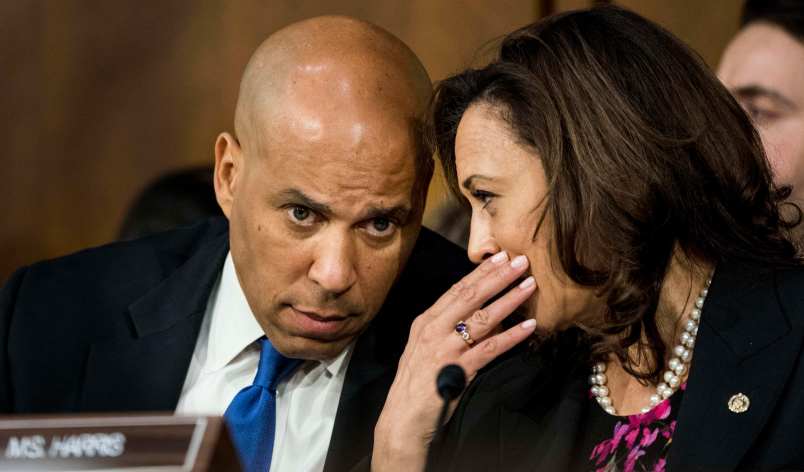I am on a book tour for The Nationalist Revival: Trade and Immigration and the Revolt against Globalization, and I invariably get asked whom the Democrats should run in 2020, and I thought on a quiet weekend when the President is (thank God) out of the country, and I am sitting around a hotel room in Berlin waiting to give a talk, I might run through my answer.
The first thing to say is that with US presidential elections, which because of the primary system put a premium on skill as a campaigner, you really can’t tell until you get to the primaries themselves and see the candidates in action.
I remember going around in the summer of 2015 in New Hampshire. At the time, Wisconsin Governor Scott Walker was supposed to be the inside choice for president, but when I saw him at a New Hampshire town hall, he seemed to have the public presence of Peewee Herman, and several months later he was out of the race. So I’d list three positives and one negative to look for:
1) Does the candidate project high energy/vivacity/large presence/charisma? It was no accident in 2015 that Trump, who, sorry to say, has brilliant political instincts, went after Jeb Bush as “low energy.” Our last four presidents have all had this kind of high energy charisma in abundance, and it helped them get the nomination in the first place. (George H.W. Bush, who didn’t, was pushed into the presidency partly by the evil genius of Lee Atwater and the ineptitude of his opponent.)
2) Does the candidate reach the audience by recognizing what it really cares about? Bernie Sanders, for instance, was derided by the Hillary Clinton people for proposing unrealistic programs, but he hit on issues and themes – universal health insurance, student debt and college tuition, campaign finance – that his audiences really cared about. Ditto Trump. Not Hillary Clinton, not Jeb Bush, not John Kerry in 2004 or John McCain in 2008 or Mitt Romney in 2012.
3) Can the candidate boast of significant or even heroic accomplishments? Yes, Hillary Clinton, Donald Trump (making money), Bob Dole, Dwight Eisenhower, Ronald Reagan, George H.W. Bush, John McCain. Not Barack Obama (except for the very fact of a part-African American from humble origins being the candidate.)
4) [Negative] Will the candidate have to answer for scandals or controversial decisions or judgments? Definitely Hillary Clinton (Iraq in 2008 and emails in 2016) and Bill Clinton (who was given up for dead in the winter of 1992), and Trump (“Access Hollywood”). Not Reagan, Obama or George W. Bush, except for some manufactured or minor stuff.
If you have #4 hanging around your neck, you better have a surfeit of #1 and #2 and perhaps #3 to counterbalance it. Bill Clinton and Trump did have the charisma and the issues/themes to overcome scandal. Hillary Clinton did not. Joe Biden got knocked out in 1988 because of a fishy plagiarism scandal. In 2016, Chris Christie failed on all these counts.
I can’t really judge who is going to satisfy these criteria in 2020, but I have some prejudices. One is that the Democrats should be very careful to nominate someone who has #1 and #2 and does not have #4. I am very wary of the septuagenarians in the party. (I am allowed to say this because I am one. Especially Sanders and Biden.) Another is that Democrats should recognize that a candidate who goes too far in stirring up the base on #2, could find her or himself vulnerable in a general election. I always thought that if Bernie Sanders (whom I voted for) won the nomination, he would have been skewered over the tax bill for some of his programs. If Trump, who is a genuine menace, is still running, Democratic primary voters should not use the primaries as a means of endorsing their most way-out wish list of programs.
Given the success of Obama, and the successes of so many women candidates in 2018, I don’t share the view that I’ve heard that the Democrats need to nominate a white male. (I also don’t believe that Hillary Clinton lost in 2016 because she was a woman.). What I do think is that if they nominate a woman or an African-American or Hispanic, it can’t be someone who like Clinton appeals to the voters on the basis of her and their identity. So I wouldn’t discount at all Cory Booker or Kamala Harris or Elizabeth Warren as potential candidates. But beyond that, I can’t say, nor can you, until we see the candidates themselves next fall.






